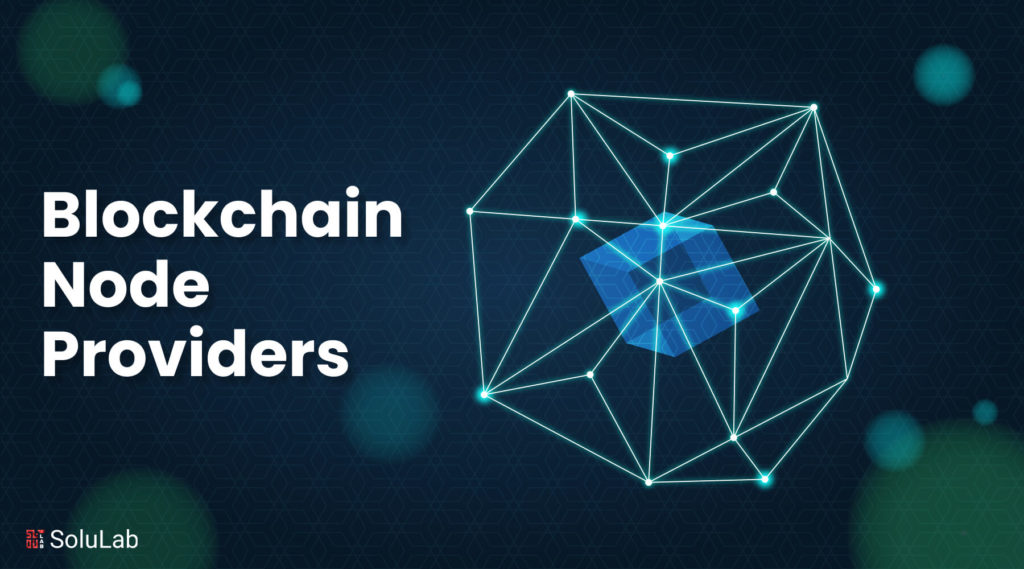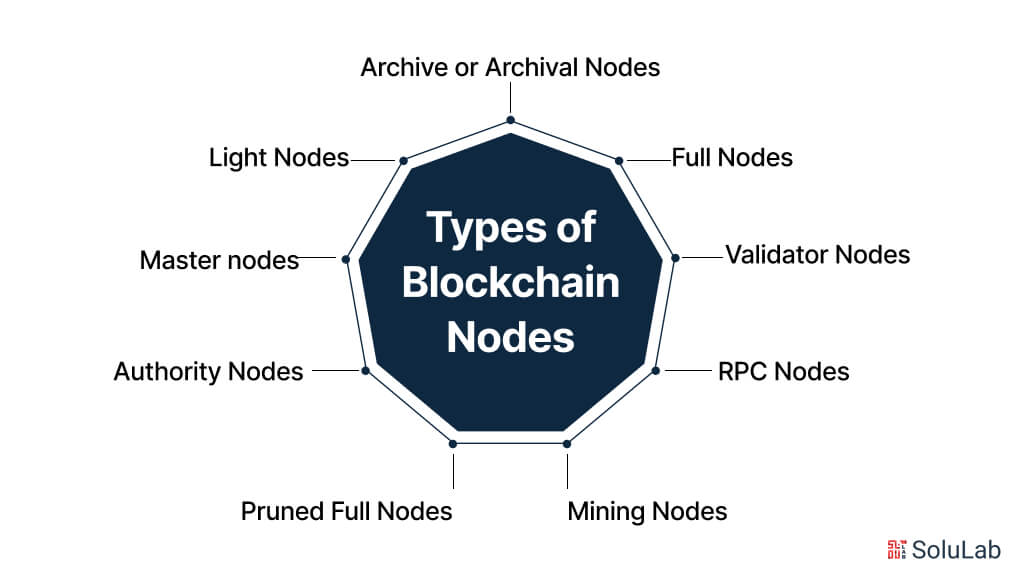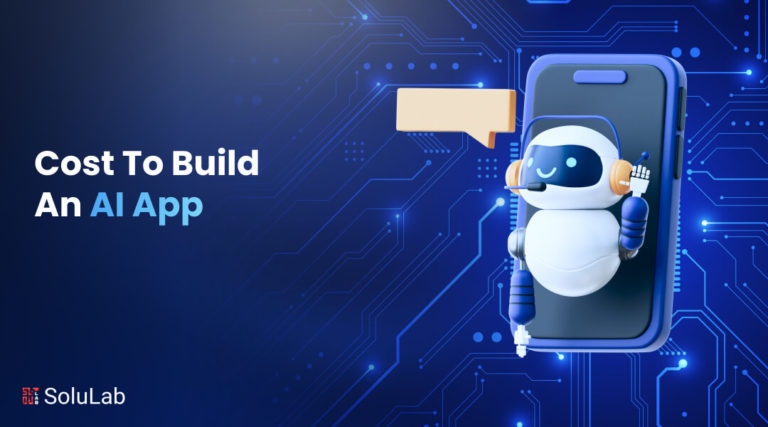
Blockchain technology has grown in popularity in recent years because of its decentralization, security, and transparency. A node is a key component of a computer network, helping to ensure the network’s integrity and decentralization.
As a blockchain newbie, you must comprehend the intricacies of the network in order to have an in-depth knowledge of blockchain ecosystems. Any blockchain network would collapse without nodes; they are very crucial.
In this blog, we will define a blockchain network, a blockchain node, how to deploy a node, and why you may want a blockchain node provider.
What is a Node in Blockchain?
For an understanding of what are nodes in blockchain, you have to first know how a blockchain network operates. A blockchain network is basically a distributed system. It implies that the software components used in its operation, as well as the data that flows between them, are dependent on various sources. These sources are network members, often known as nodes.
The role of blockchain network nodes is to convey complicated messages in order to share resources and achieve a common goal. In the case of a blockchain network, for example, those goals can be modifications to state, such as making changes to your wallet’s balance via transactions, block propagation, like verifying the hash of new blocks, or other sophisticated and non-trivial processes.
What Role Do Blockchain Nodes Play?
As technology advances, blockchain technology’s popularity will only grow. Over the past few years, it has been widely used in a range of industries, including supply chain, healthcare, and energy. Therefore, in order to comprehend the dynamics and benefits that set blockchain technology apart from its conventional competitors, it is crucial to comprehend the fundamental architecture and infrastructure of the system.
The foundation of a blockchain system is its nodes. Their primary goals are to establish their legitimacy inside the network and improve the safety of the data on the blockchain. A blockchain network can include thousands of nodes to guarantee its traceability, immutability, and decentralization.
Because they keep track of every blockchain transaction, nodes contribute to dependability. Furthermore, as a blockchain network lacks one single point of failure, nodes may also defend the blockchain from centralized attacks. Every node utilizes a duplicate of the blockchain database to confirm transactions before adding them as blocks to the blockchain. Therefore, a blockchain is more trustworthy the larger its node network.
On the blockchain, nodes may be used for a wide range of tasks, such as managing, keeping track, and ordering blockchain transactions, rejecting and storing data, and upholding the consensus mechanism. Nodes must also decide if a block of transactions or signatures is valid before accepting or rejecting it in order to maintain the network.
Read Blog Post: The Core Concept of Blockchain Development
How Do Nodes Function in a Blockchain?
After talking about what a blockchain node is, it is crucial that we understand how nodes function. In order to do that, it is first required to revisit blockchains to understand how they operate. A blockchain is a shared, immutable record in which every block is cryptographically connected to every other block. This means that if one portion of the blockchain changes, it will affect every block that comes after it. They are impervious to alteration, though, because they are numerous copies and reside on a dispersed network.
Physical network nodes are distinctive in that they may all be identified from one another by a certain trait or attribute. Their duties may vary based on the nature of the application. As was previously said, the term “node maintenance” refers to the maintenance of blockchain transaction data, although not all nodes perform this job. The general specifications of the blockchain determine what the node accomplishes. In addition to the typical responsibilities of handling transactions, exchanging data with other nodes to expand the network, and putting an algorithm into place to maintain network updates and functionality, every node in the blockchain ecosystem has a distinct duty to perform.
RPC nodes are specialized kinds of blockchain nodes that are set up to do more complicated operations on the network, such as retrieving transactions from smart contracts or acting as reliable middlemen in certain transactions. These nodes are often operated and typically possess substantial processing power and resources.
Types of Blockchain Nodes

Understanding the various types of network nodes and how they work for different blockchain levels is essential to comprehend what a blockchain node is.
1. Full Nodes
In order to completely validate transactions and blocks against the network’s consensus rules, a full node keeps the complete blockchain. Furthermore, complete nodes are essential for dispersing this information around the network interfaces and guaranteeing the prompt and effective distribution of new blocks and transactions. However, full nodes often refrain from recommending fresh blocks to be added to the blockchain.
Furthermore, full nodes are important for blockchain network governance. The decision of complete nodes to accept or reject proposed protocol upgrades or changes becomes a potent consensus signal.
2. Archive or Archival Nodes
In contrast, an archive node is a more advanced version of a complete node that retains data for a longer period of time. An archive node not only saves the whole blockchain but also painstakingly preserves all previous network states, including all transitional states between blocks. This implies that an archive node records and maintains the change that results from every operation, including transactions, contract execution, and other activities. It’s similar to having a time capsule of the whole blockchain’s past, enabling engineers to go back in time and examine any particularly interesting point.
An archive node is a vital tool for projects that need to delve deeply into previous data or for troubleshooting intricate smart contracts. This depth of knowledge does, however, come at a price, since an archive node requires significantly more storage than a typical full node, making it necessary to maintain a significant infrastructure and financial commitment. Once more, anyone can operate an archive node on chains without authorization.
3. Validator Nodes
Validator nodes, also known as staking nodes in certain networks, participate more actively in the block-building process than standard full nodes, which are mainly responsible for transaction validation and relaying. They are selected to verify and add new blocks to the chain based on a variety of criteria, including the quantity of native cryptocurrency staked, reputation, and other considerations. These nodes contribute to reaching an agreement on the blockchain’s future state by suggesting or approving new blocks.
A variety of roles are played by validator nodes in blockchain network services such as Shardeum. When it’s their turn, they each independently verify, come to an agreement on, and handle transactions without taking the lead. The network groups these transactions into batches or blocks once they have been verified. The network’s archive nodes receive these aggregated transaction groups and propagate them for thorough storage and historical record-keeping.
All things considered, the aforementioned are predicated on the notion that validators behave honorably. If they participate in malevolent activities or validate transactions or blocks erroneously, they will be subject to severe penalties, also referred to as “slashing,” which may result in the loss of their staked assets. Therefore, in some blockchain ecosystems, validator nodes serve as a combination of authority and trust, maintaining network integrity and promoting decentralization.
4. RPC Nodes
In a blockchain network, Remote Procedure Call nodes, or RPC nodes, are essential access points. They execute requests and carry out certain tasks to enable external interactions with the blockchain. RPC nodes are used for communication by developers, apps, and other network users to send transactions, retrieve data, and check the network’s status. These nodes decipher these external requests, send them to the blockchain, and then provide the proper answers.
RPC nodes are essential for spanning the gap between external entities and the underlying blockchain technology applications, even if they are not directly engaged in consensus or block validation. This helps to make the network more accessible and useful for a variety of applications and services. Their existence emphasizes how crucial usability and accessibility are to increasing the adoption of blockchain technology.
5. Mining Nodes
On Proof-of-Work (PoW) blockchains, like Ethereum and Bitcoin (as of this writing), miners, also known as mining nodes, are in charge of finishing the tasks necessary to generate a block. Usually, this effort requires figuring out intricate mathematical problems in order to get the right answer, which is a hash output that verifies the block.
The work is accomplished using a variety of hardware components, such as the Central Processing Unit (CPU), Graphics Processing Unit (GPU), or Application-Specific Integrated Circuit (ASIC), depending on the protocol requirements. If consensus is reached beforehand, the first person to successfully finish the task at hand and announce it to the network asserts the right to propagate the block.
6. Pruned Full Nodes
While pruned nodes have a more storage-efficient approach, their basic functioning is quite similar to that of complete nodes. They discard older data to stay below a certain storage barrier, giving priority to current blocks instead of keeping the complete blockchain. A pruned node will first download the blockchain; but, while it runs, it will gradually remove earlier blocks so that only the most current information that complies with its predetermined storage specifications is kept.
For instance, if an operator sets aside 550MB for a pruned node, it will keep the most recent blocks that meet this restriction and remove older data as needed. Even with their more efficient storage approach, pruned nodes still have the complete node functionality to verify transactions and participate in consensus processes.
7. Authority Nodes
A node designated as an authority by the community or entity in charge of managing a blockchain is called an authority node. They serve as permission for new nodes to join a blockchain. Additionally, if another node needs to access a certain data channel, they can control the access permissions of other nodes. Authority nodes are used by consensus methods like Delegated Proof of Stake and Proof of Authority, which are not entirely decentralized.
A certain number of authority nodes are necessary for the operation of such consensus methods. The development team normally determines or the community votes on the number of authority nodes and who they will be. The lightweight nodes that other network users will be operating depend on the data transmitted by the authority nodes in order to function on the blockchain.
8. Masternodes
Full nodes called masternodes are in charge of verifying transactions and keeping up the blockchain ledger. They are unable to add new blocks to the blockchain, though. Masternodes are typically more potent than ordinary nodes. Nodes in blockchain may help other blockchain-based events as well, depending on the type of event. These include overseeing voting events, executing protocols, and upholding the relevant blockchain regulations.
Masternodes are nonetheless crucial to the network’s functionality and security even if they don’t contribute as many new blocks as full nodes do. In addition to helping to keep the network secure, users that operate masternodes might potentially get a portion of the benefits for their labor.
9. Light Nodes
To enable portable interaction with Web3, light nodes only need to carry the headers of blocks, not the whole weight of the blockchain. Because it is typically located on the user side, like a wallet interface, this kind of node is the most prevalent one in the space.
Technically speaking, light nodes—also known as Simple Payment Verification (SPV) nodes—depend on full nodes to supply them with the data they require to carry out their functions. They can only disseminate transactions to the network for processing and check the most recent block’s status because they do not personally possess a copy of the blockchain.
What are Blockchain Node Providers?
Blockchain node providers play a pivotal role in the infrastructure of blockchain networks, offering essential services to support the operation and maintenance of blockchain nodes. In the decentralized world of blockchain technology, nodes are crucial components that validate and relay transactions, maintain copies of the blockchain ledger, and ensure the overall integrity and security of the network.
Blockchain node providers are third-party entities or service providers that offer infrastructure services specifically tailored to support blockchain networks. They facilitate the deployment, management, and operation of blockchain network nodes, allowing individuals, businesses, and developers to interact with blockchain networks without the need for extensive technical expertise or infrastructure investment.
Read Blog: Top Blockchain Development Companies 2024
How Do Blockchain Node Providers Offer Infrastructure Services?
Blockchain node providers offer a range of services aimed at simplifying the process of running blockchain nodes. These services include:
- Node Deployment: Node providers enable users to easily deploy blockchain network nodes forming without having to set up and configure the infrastructure themselves. They offer intuitive interfaces or APIs that allow users to select the desired blockchain network and node configuration, and then provision the node with just a few clicks.
- Maintenance and Monitoring: Once deployed, node providers take care of the ongoing maintenance and monitoring of the nodes. This includes ensuring that the nodes are up-to-date with the latest software updates and patches, monitoring node performance and uptime, and addressing any issues or technical glitches that may arise.
- Security Measures: Node providers implement robust security measures to protect the nodes and the data they contain from unauthorized access or malicious attacks. This may include encryption of node communication, firewalls, intrusion detection systems, and other security best practices.
- Scalability and Flexibility: Node providers offer scalable solutions that can accommodate the growing needs of blockchain networks. Users can easily scale their node infrastructure up or down based on demand, without having to worry about provisioning additional hardware or resources.
Benefits of Using Blockchain Node Providers
Blockchain node providers offer a range of advantages to developers, businesses, and other stakeholders looking to engage with blockchain networks. Here are some key benefits:
1. Accessibility to Blockchain Networks: Node providers democratize access to blockchain networks by offering user-friendly blockchain platforms and services that simplify the process of deploying and managing blockchain nodes. This accessibility lowers the barrier to entry for developers and businesses, enabling them to participate in blockchain ecosystems without requiring extensive technical expertise or infrastructure investment.
2. Cost-effectiveness Compared to Running Independent Crypto Nodes: Running independent blockchain nodes, also known as crypto nodes, can be resource-intensive and costly, requiring significant investments in hardware, software, and bandwidth. By leveraging node providers, users can benefit from cost-effective solutions that eliminate the need for upfront capital expenditure and ongoing maintenance costs associated with managing crypto nodes.
3. Scalability and Flexibility in Crypto Node Deployment: Node providers offer scalable solutions that can accommodate the evolving needs of blockchain networks. Whether users require a single crypto node or a distributed network of nodes across multiple geographic regions, node providers can easily provision and manage the required infrastructure. This scalability and flexibility empower developers and businesses to adapt to changing requirements, handle increased transaction volumes, and support the growth of their blockchain applications.
4. Enhanced Reliability and Uptime of Crypto Nodes: Node providers often utilize redundant infrastructure and advanced monitoring tools to ensure high availability and uptime of crypto nodes. By entrusting node management to experienced providers, users can benefit from enhanced reliability and performance, minimizing the risk of downtime and ensuring uninterrupted access to blockchain networks. This reliability is essential for mission-critical applications and services that depend on constant connectivity to the blockchain.
5. Focus on Core Competencies: By offloading the management of crypto nodes to specialized providers, developers, and businesses can focus on their core competencies and strategic objectives. Rather than dedicating resources to infrastructure maintenance and technical operations, users can allocate their time and resources toward innovation, product development, and business growth. This allows organizations to maximize their efficiency and effectiveness in leveraging blockchain technology to drive value and achieve their objectives.
Final Words
To summarize, blockchain node providers play a crucial role in facilitating the accessibility, affordability, and scalability of blockchain networks. By offering infrastructure services tailored to the needs of developers and businesses, these providers enable a wider range of stakeholders to participate in decentralized ecosystems without the burden of managing complex node infrastructure. From enhancing reliability and uptime to enabling cost-effective deployment of blockchain nodes, the benefits of leveraging blockchain node providers are clear.
Looking to leverage blockchain technology for your next project? SoluLab is here to help. As a leading blockchain consulting company, we specialize in delivering customized solutions to meet your specific needs. Whether you’re building decentralized applications, implementing smart contracts, or exploring tokenization opportunities, our team of experienced blockchain developers is ready to assist you. Hire blockchain developers from SoluLab today and unlock the full potential of blockchain technology for your business.
FAQs
1. What is a blockchain node?
A computer or other device that is a member of the blockchain network is called a blockchain node. It uses a number of procedures to guarantee the security and integrity of the data while storing a copy of the whole blockchain ledger. Nodes exchange messages with one another in order to uphold consensus, verify and forward transactions, and keep the network decentralized. Different node types exist, including as lightweight or light nodes that keep only necessary data and rely on full nodes for transaction verification, and full nodes that record the whole blockchain history.
2. Why should I use a blockchain node provider instead of running my own node?
Using a blockchain node provider offers several advantages, including accessibility, cost-effectiveness, and scalability. Node providers simplify the process of deploying and managing nodes, eliminating the need for upfront capital expenditure and ongoing maintenance costs associated with running independent nodes. Additionally, node providers offer scalable solutions that can accommodate the evolving needs of blockchain networks.
3. How do blockchain node providers ensure the security of my nodes and data?
Node providers implement robust security measures to protect nodes and the data they contain from unauthorized access or malicious attacks. These measures may include encryption of node communication, firewalls, intrusion detection systems, and regular security audits. By entrusting node management to experienced providers, users can benefit from enhanced security and peace of mind.
4. Can I scale my node infrastructure easily with a blockchain node provider?
Yes, blockchain node providers offer scalable solutions that allow users to easily scale their node infrastructure up or down based on demand. Whether you require a single node or a distributed network of nodes across multiple geographic regions, node providers can provision and manage the required infrastructure to support your needs.
5. How can SoluLab help with blockchain development?
SoluLab is a leading blockchain development company with a team of experienced blockchain developers ready to assist you with your project. Whether you’re building decentralized applications, implementing smart contracts, or exploring tokenization opportunities, SoluLab offers customized solutions to meet your specific needs. Hire blockchain developers from SoluLab today and unlock the full potential of blockchain technology for your business.






